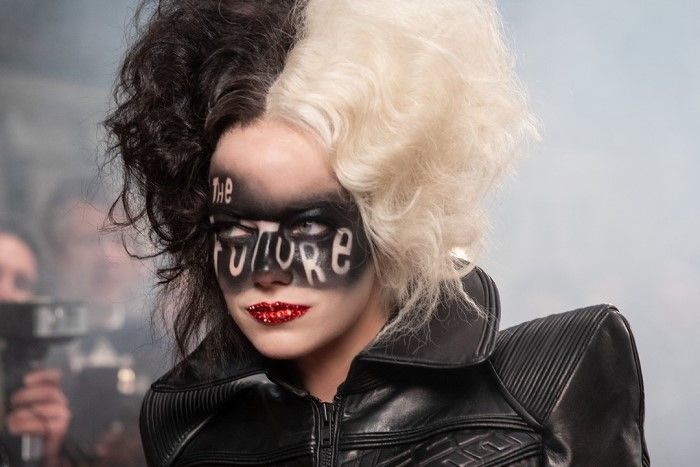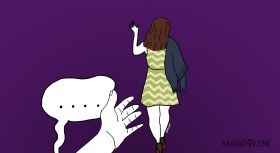After avoiding crowded places for more than a year, I went back to the cinema last week. It was Cruella that successfully dragged me back to the second oldest cinema in the heart of Jakarta. This film reveals the process of how the younger version of Cruella de Vil became the antagonist character in 101 Dalmatians film in 1961.
It is very easy for me to be lured to the cinema during the pandemic by Disney and its rocking female villain. Since I was a little girl, Disney films have dominated my family's living room. My parents bought me many Betamax videos of the pretty princesses, from Sleeping Beauty to Pocahontas. I can also remember clearly sitting between my parents at the cinema. They took me to see The Little Mermaid although I had played the video repeatedly at home.
However, things are different now. The concept of happily ever after of Disney princesses does not really suit me anymore. I mean, waiting for a prince to come and save you? That is not how my mother raised me. I was raised to work so there would be no such thing as me being dependent on other human beings. Especially men – no way!
Unlike the princesses, Cruella's hustle in the British 70s fashion industry represents more of the females' struggles in the 21st century. How she is tight financially kind of reminds me of how this COVID-19 pandemic has decreased my income. The internal sexism or jealousy experienced by the older female character to the younger Cruella also reflects some bad treatment my friends received from their female superiors at work.
Also read: 'Maleficent' Takes Feminist Revisionist Backstory to the Next Level
However, it is not only Cruella who is more related to female experiences in a real life situation. Maleficent, for instance, also has a specific motif behind her evil curse towards Princess Aurora from the Sleeping Beauty; she was heart-broken. Played by Angelina Jolie, in the first Maleficent film, audiences were shown how Aurora's father actually betrayed the villain's love just so he could become a king.
The king cut Maleficent's wing so she would not be able to fly and confronted him and his new bride in their palace. Sounds familiar? Well, it is for me. I have an ex-boyfriend who suddenly cut contact with me so I would not ruin his wedding plan with another woman I didn't know existed. He ghosted me. How childish.

Another powerful female villain is Queen Ravenna. She is Snow White’s evil stepmother played by Charlize Theron in Snow White and the Huntsman. I have to admit that Ravenna is not a good character. She definitely would never understand the idea of women supporting women. First, she killed her niece just because the magic mirror said that the baby girl would be more attractive than her. Second, she tried to kill Snow White so she could be the fairest female in the kingdom which belonged to Snow White's father. She is very bad.
However, Ravenna never shows her dependency towards anyone. There is no such thing as Ravenna looking for a man to make her complete. She knows that she loves being powerful and she fights for it.
Also read: Disney Princesses Are Not Model Leaders
Cruella de Vil is a Relatable Villain
What Cruella, Maleficent, and Ravenna do are things I never see in the classic Disney princess films. Those princesses were always portrayed as helpless young women who ended up in a marriage with a Prince Charming. They do not even show some effort to get to know those men better before tying the knot.
On the other hand, Cruella knows how to make money. She works night and day to prove that she has a brighter future for the fashion industry. Maleficent fights back the victim blaming aimed at her by the king. She even takes care of his ex's baby, Aurora, when the future Sleeping Beauty is hidden in the forest carelessly. While Ravenna shows us that persistence is necessary and a queen does not need a king.
The deconstruction of the happily ever after idea by the villains’ point of views is something that I really admire. Working at a university, I have been involved in countless discussions on how to stop the traditional concept of society. It has never been easy to persuade young women to aim higher than just end up being inferior in a marriage. Especially if the marriage was not something that she desired, but her family and society.

Unfortunately, not every woman has the opportunity to gain knowledge from discussions and seminars. The media is not always helpful as well, particularly Indonesian media, which are oriented more towards profit and audience, than educating the society. Therefore, films like Cruella and Maleficent are always in my admiration.
Also read: Let's Have More Elsa, Maleficent and Merida: A Mother's Take on Fairy Tales
Besides feeling related to the villains' experiences, it is so satisfying that hard-working women who fight for equality are being represented on the big screen. Not only does it appear as a justification that outspoken women are awesome, but it is also time to provide young girls stories from more progressive point of views.
It is time to push young girls to dream higher than marrying a privileged good-looking man. It is time for them to learn that we can do more than what society expects. They should understand that we can be anything and we can do whatever we want.
Films on Disney villains have empowered me in a different way. However, this does not make me a Disney princesses hater. I understand well that they were created in a different time and place. I was so lucky that I was raised by a mother who could filter the lessons in those classic films by pointing out the reality around me. This makes a woman my mother shaped me into one who has the heart as kind as the princesses, yet ambition as loud as the villains.







Comments